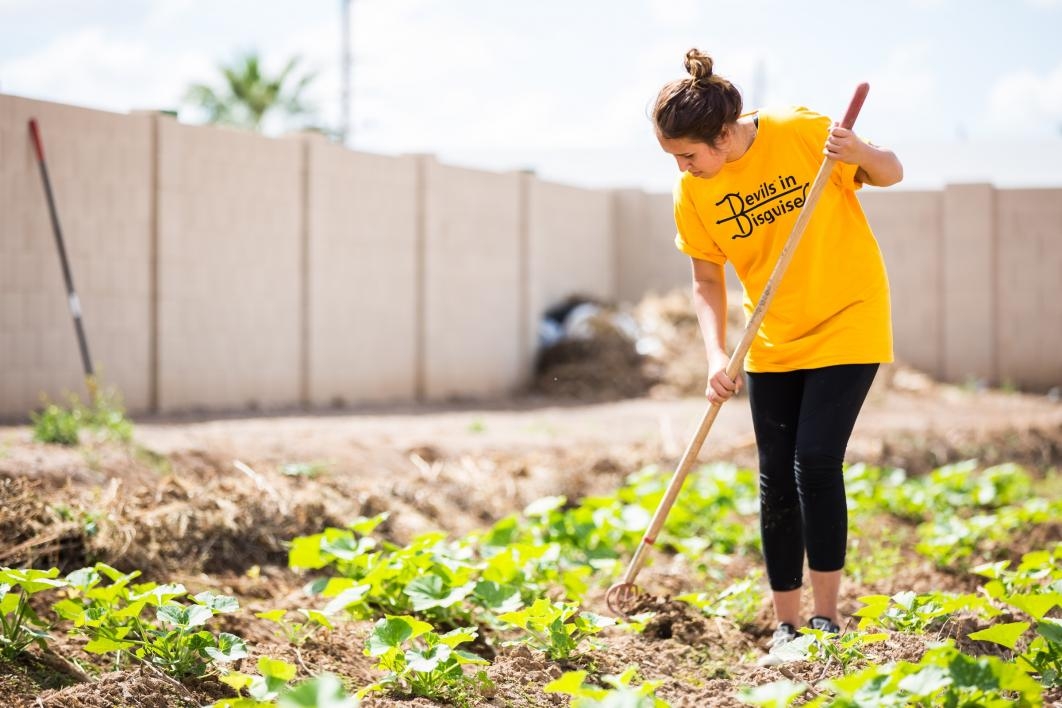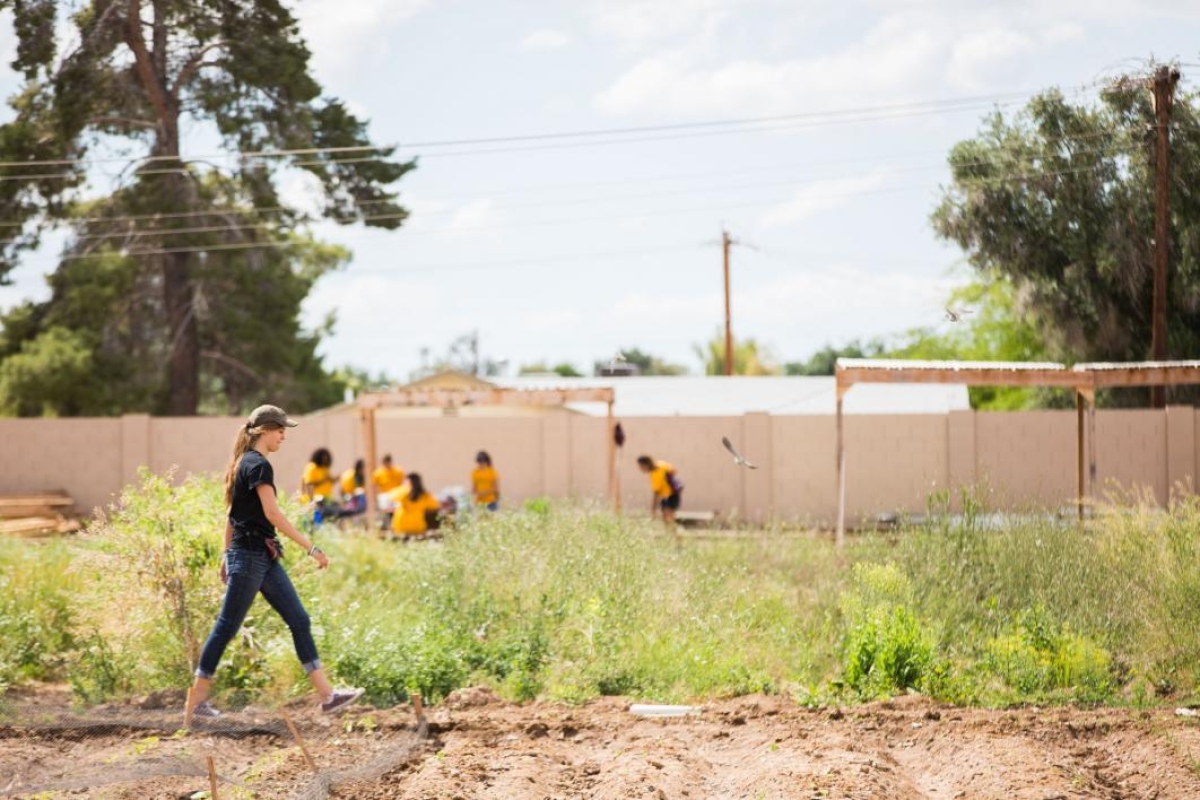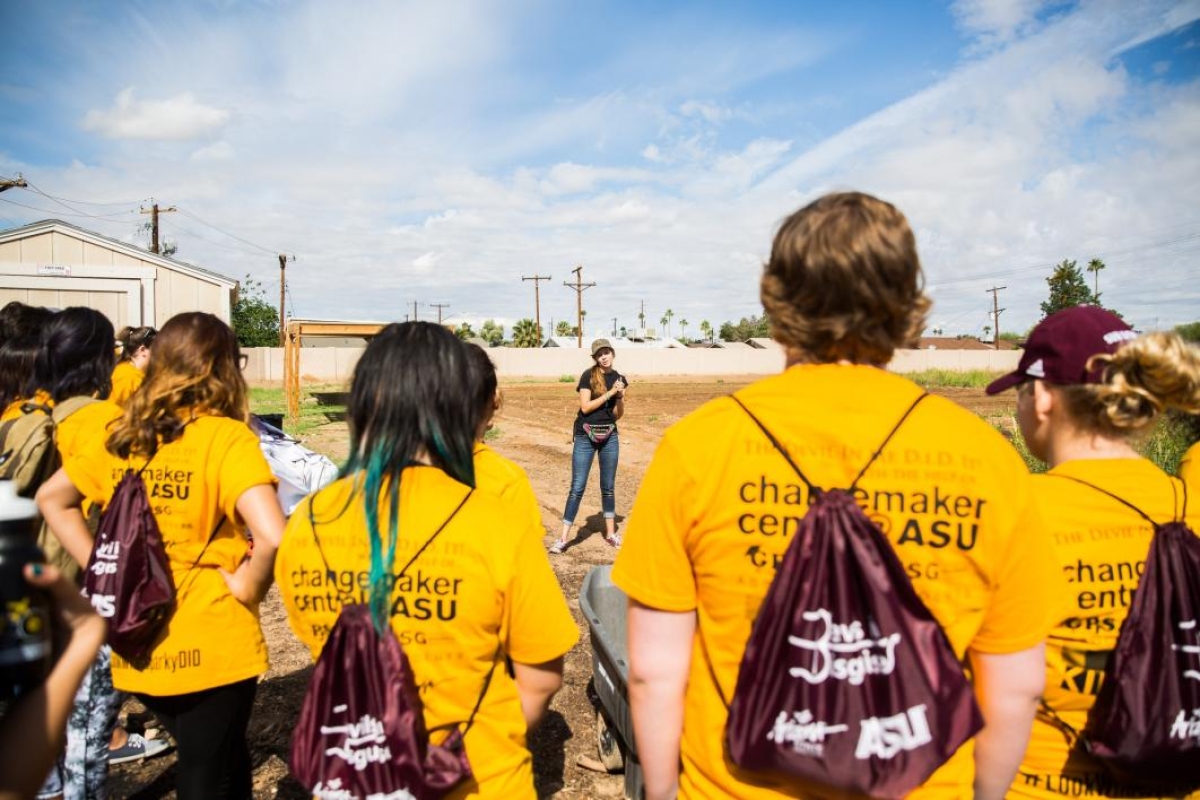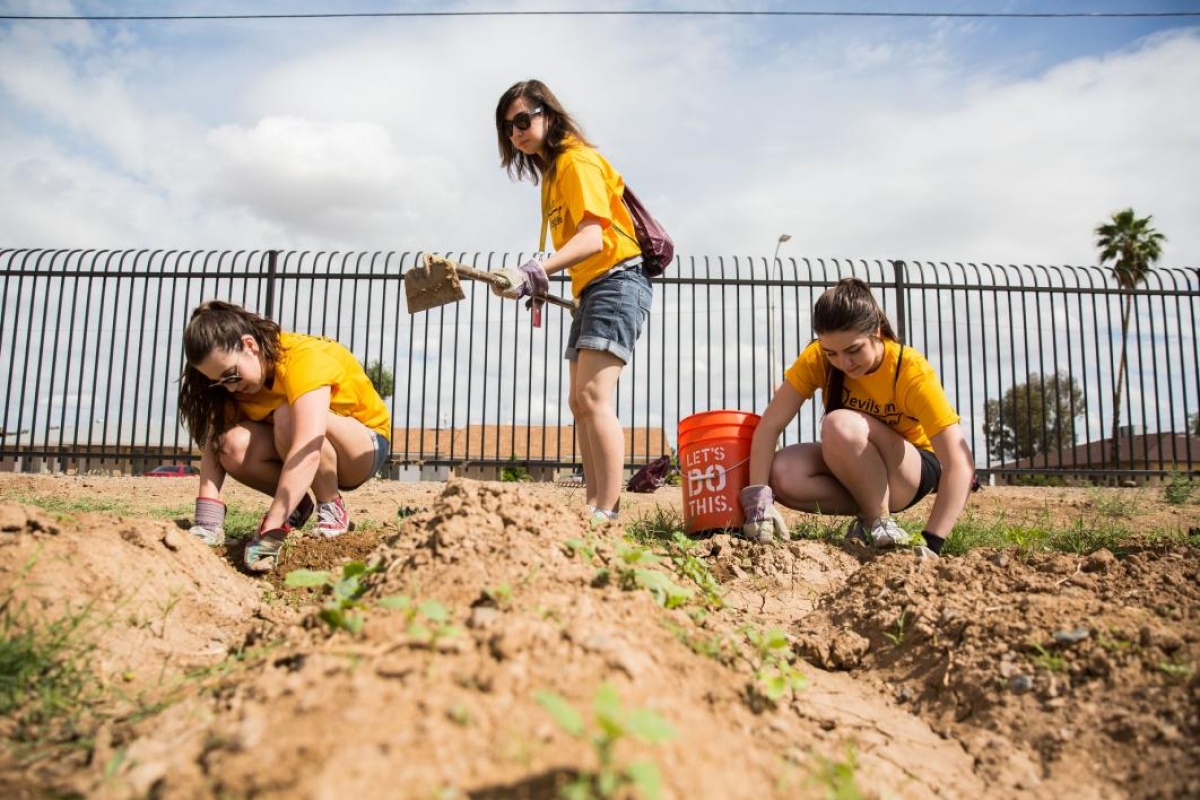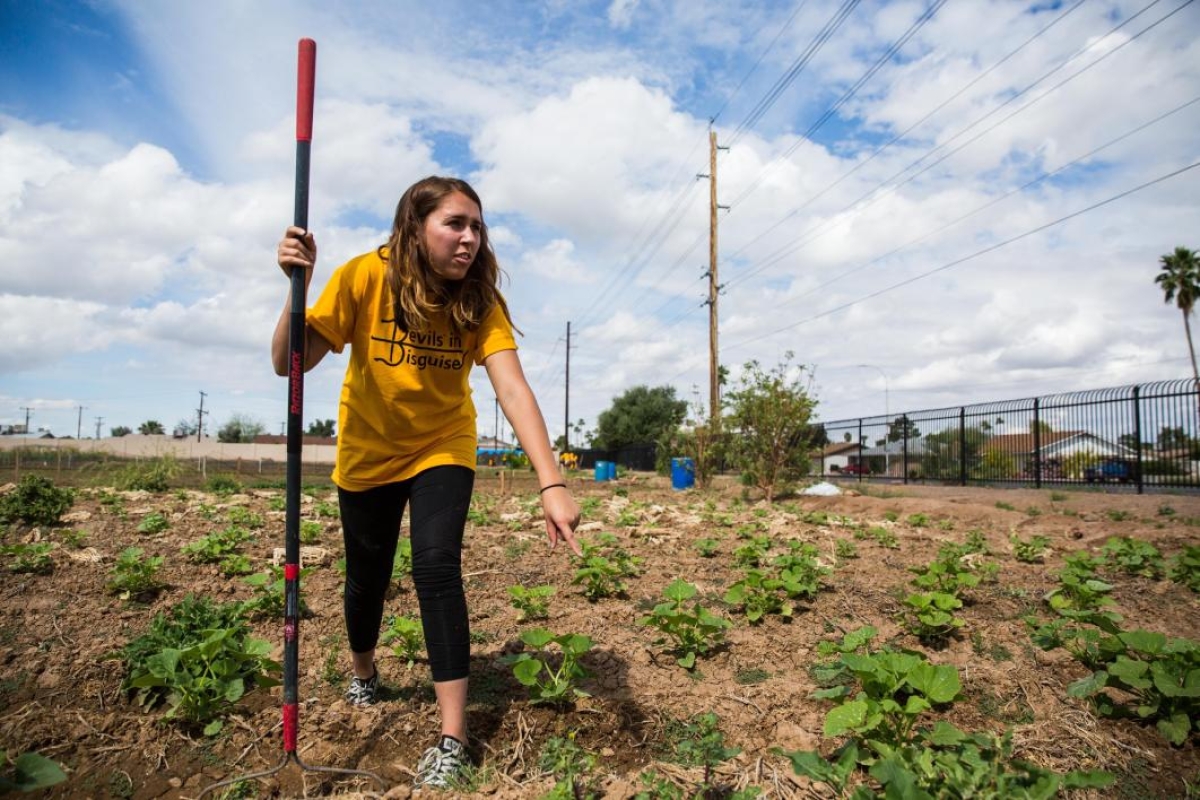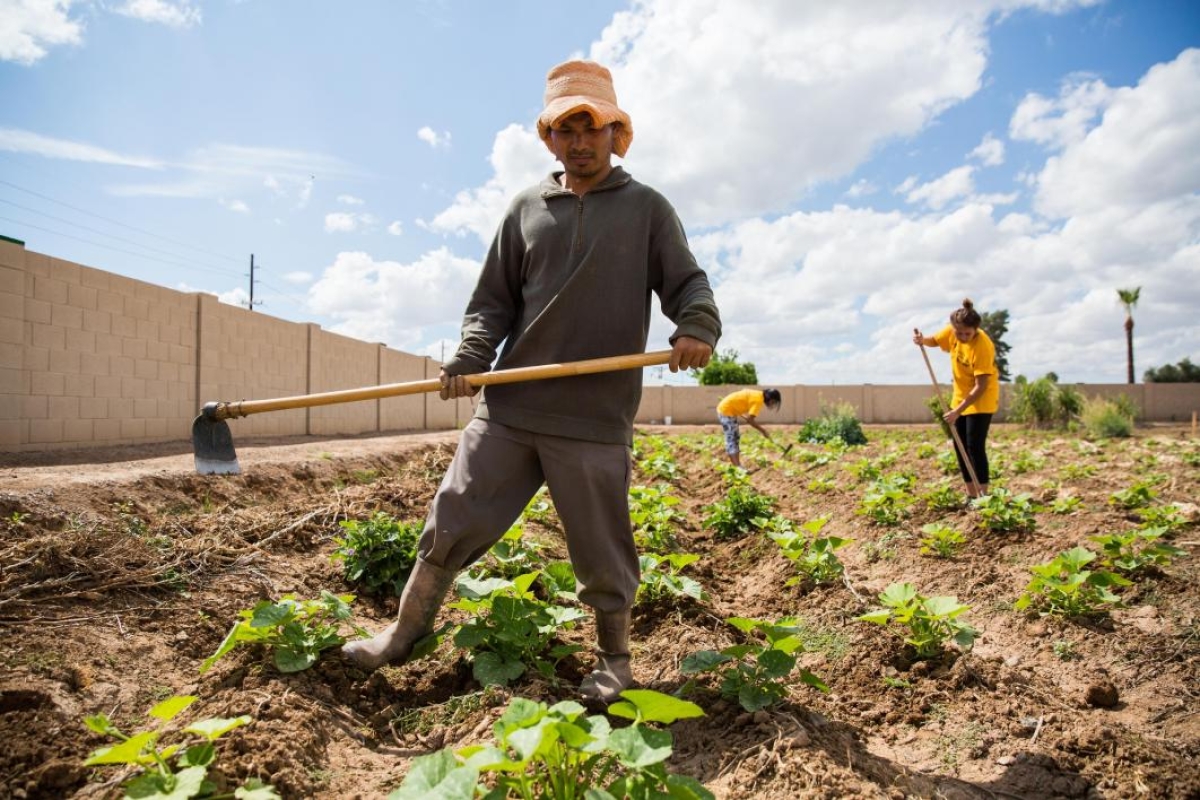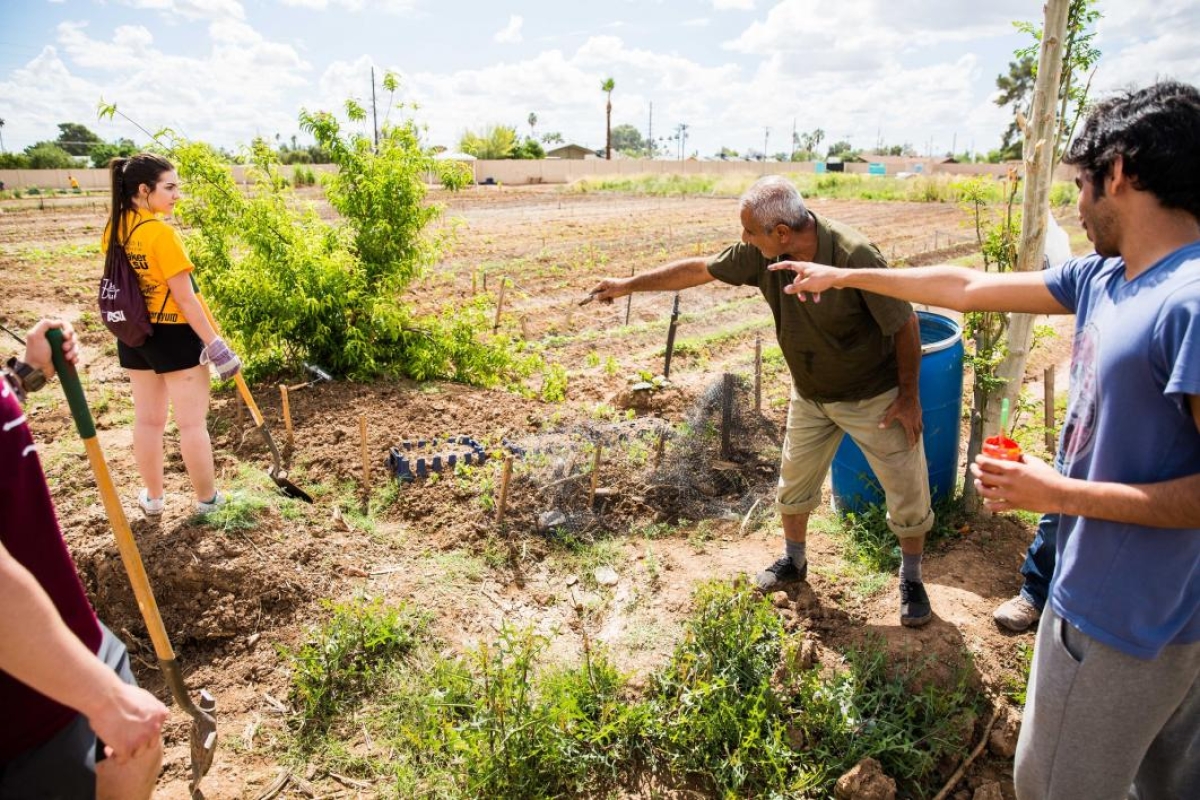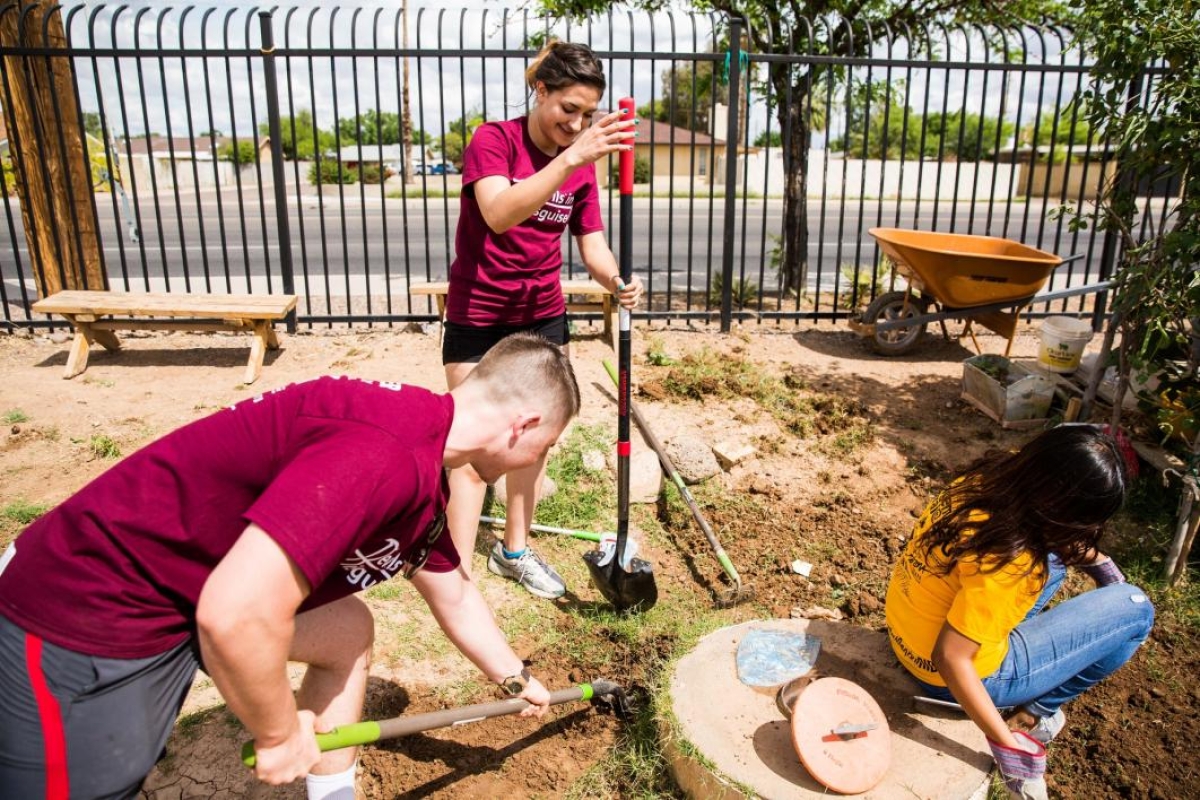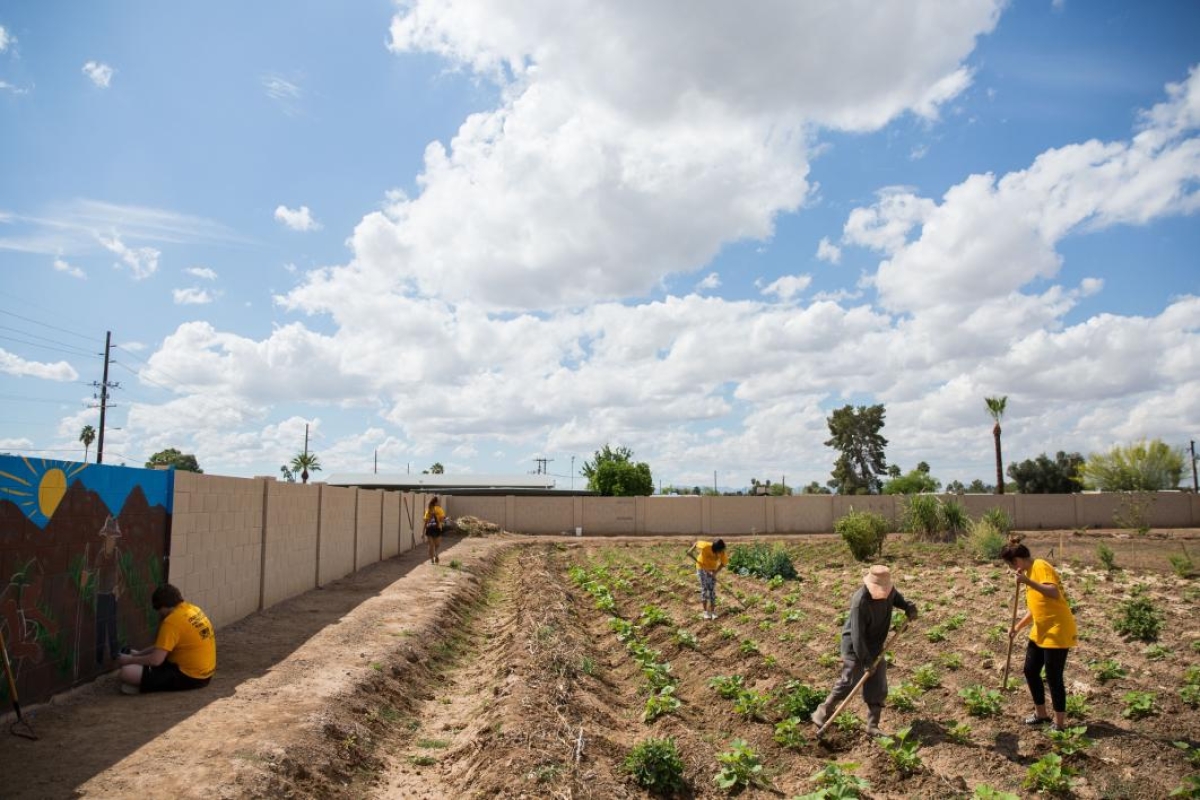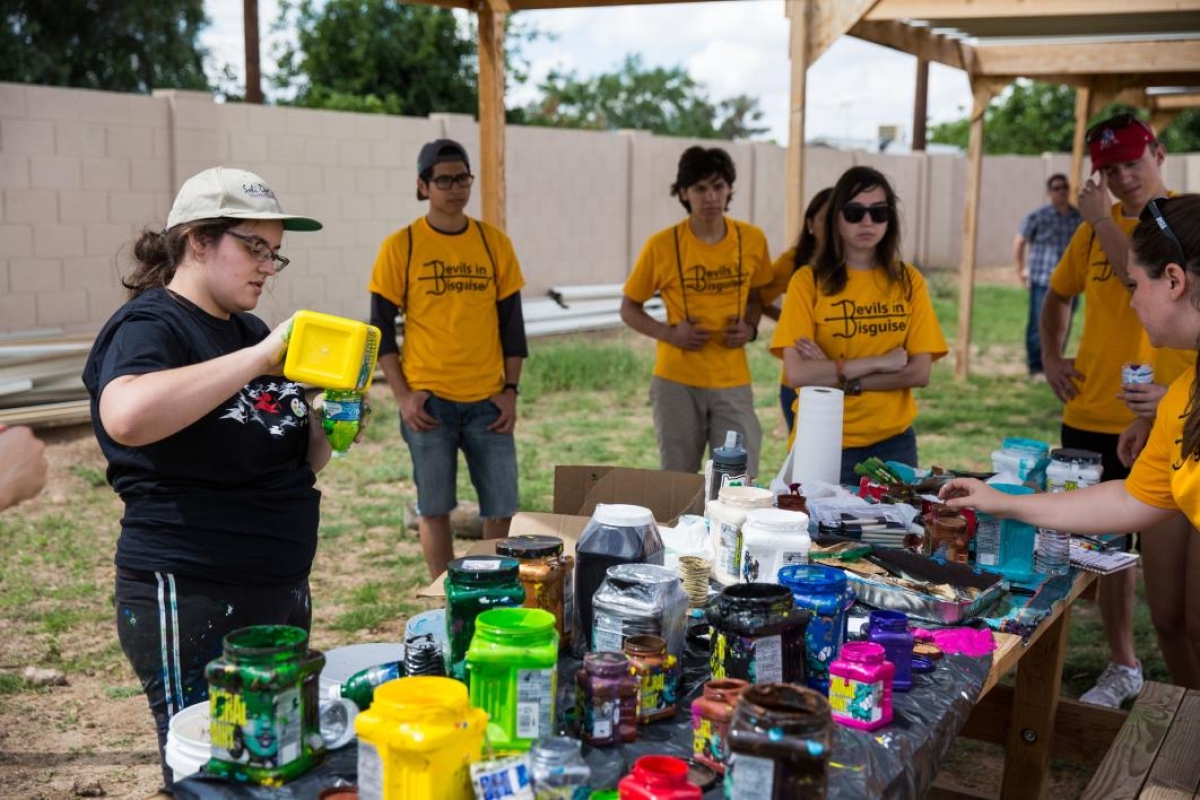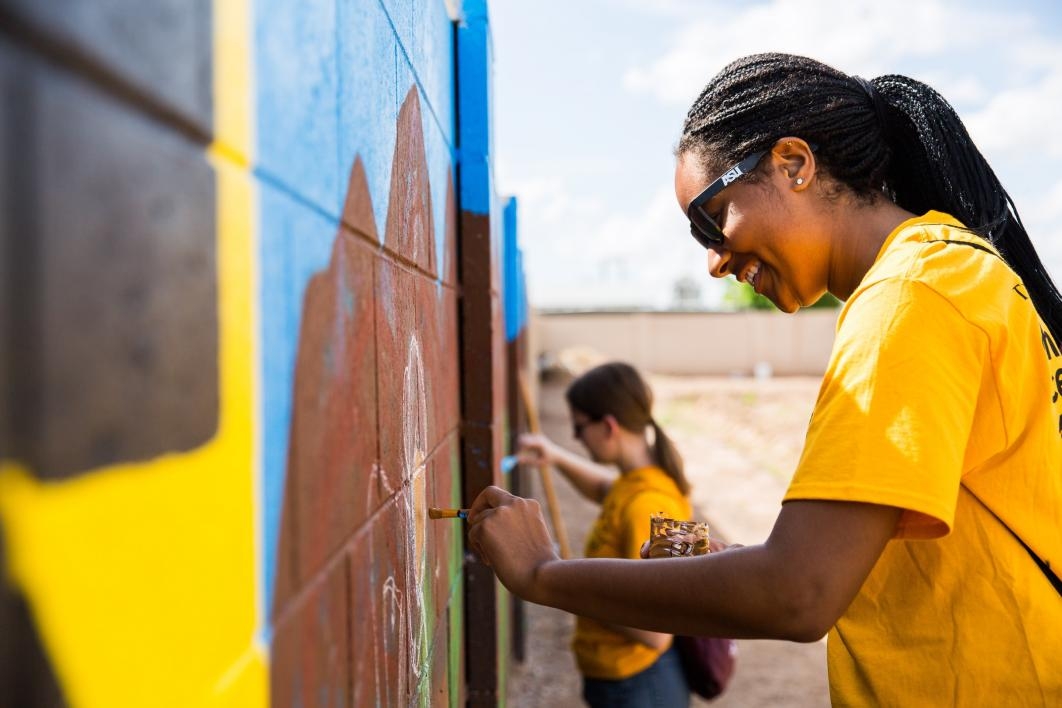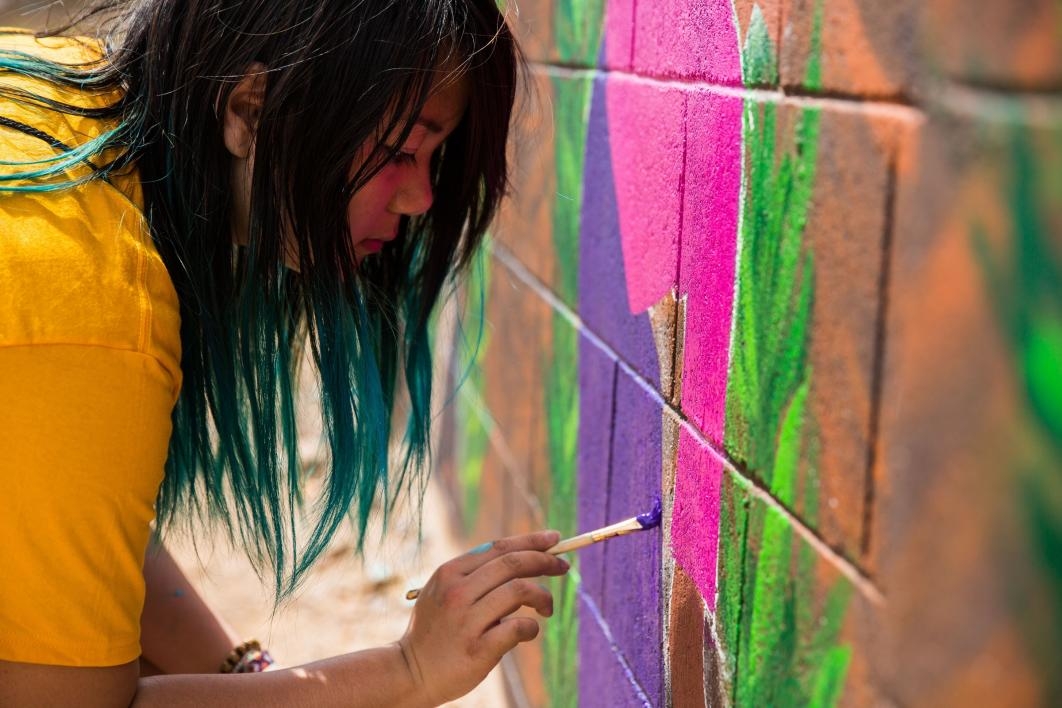Planting new roots
ASU students help refugees tend to community garden
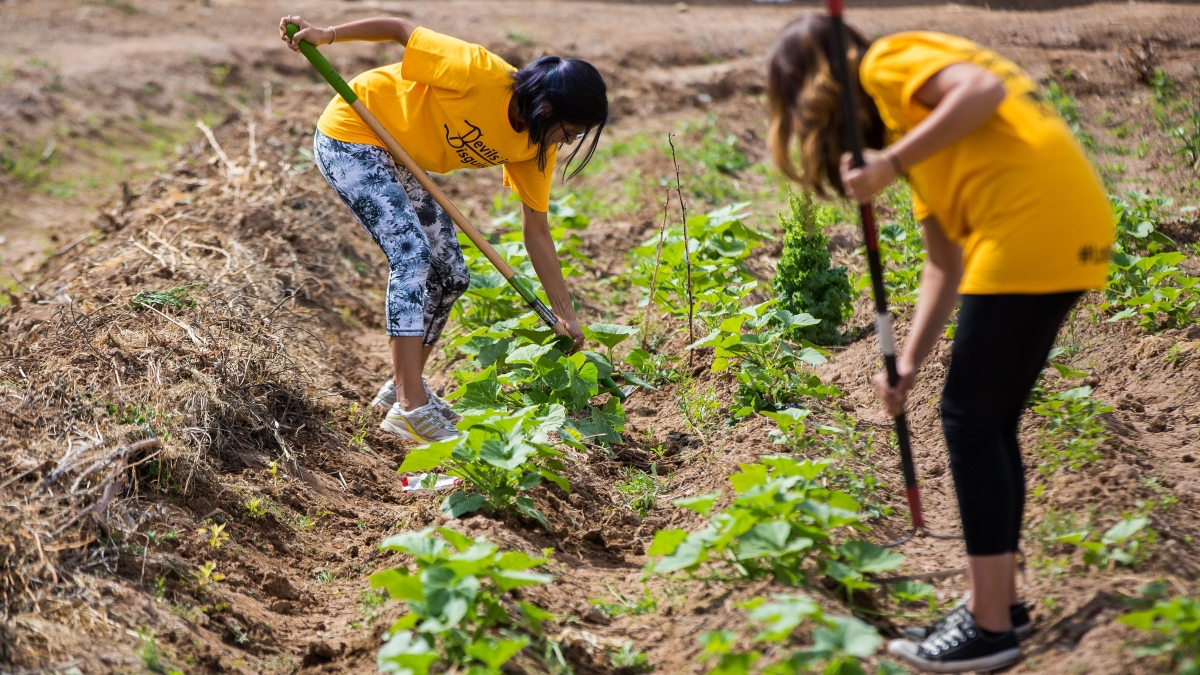
Lindsay Dusard has a heart of gold.
Get the 20-year-old Arizona State University student to open up about the subject of refugees, and more likely than not a tear or two will be shed by the time she finishes her first sentence.
Refugees have an ally in Dusard, one of approximately 60 members in ASU’s Peace Corps Club. She says being a Peace Corps AmbassadorAmbassadors are interns who work closely with Peace Corps recruiters to raise the agency’s profile on campus and introduce the Peace Corps to new and diverse student groups. has been a life-changing experience.
“I’ve grown up here in Arizona and lived a very comfortable life. Working with refugees has completely changed my perspective on the things that really matter and what life is about,” said Dusard, who is a public policy and marketing major in the W. P. Carey School of Business.
“Almost all refugees have been through some sort of trauma. They’ve seen their houses bombed, family members get shot and yet we’re still sometimes unwelcoming as a country. My mission is to get people to understand who they are, how thankful they are to be here in this country and why we should help them start a new chapter in their lives.”
For about 20 refugee families in the Valley, their new chapter started in 2011 with the construction of a community garden at the southwest corner of Dunlap and 39th avenues. The 1.5-acre lot belongs to the West Dunlap Baptist Church, which has leased the land for free to the International Rescue Committee (IRC) for the past five years. The IRC has a few other community gardens in the Valley, which it calls its New Roots program. The program allows refugees to grow food to eat and to sell to help support themselves.
While other Valley service groups and grants initially raised more than $100,000 to prep the once-vacant land into a community garden, ASU’s Peace Corps Club was able to make further enhancements to the property this year thanks to a Woodside Action Community Grant provided through ASU’s Changemaker Central.
The $1,500 grant allows service groups to carry out community-focused projects that are engaging, solutions-focused, sustainable and have long-term impact.
“The participation of ASU students this spring has not only added color to the garden but also creates an image that sends a good message to the community and the refugee families,” said Timothy Olorunfemi, the New Roots program supervisor with the Glendale-based International Rescue Committee. “The ASU students have really shown their love and passion for the refugees.”
On April 9, with the assistance of 27 ASU students, the Peace Corps Club put the grant into action with a day of service. Students pulled grass and weeds, collected trash, cleared out irrigation systems, painted murals and provided garbage bins to the site. A few of them picked up shovels and hoes and worked alongside the farmers, tilling the dusty crops, which include tomatoes, okra, pumpkin, corn, sweet potatoes, melons and beans.
Siang Neh, a farmer from Nepal, grows pumpkin leaves. It is considered a delicacy in many countries, including Nepal, Bhutan and some countries in Africa.
“We can only grow this for three months,” said Neh, who has lived in the United States for five years. “The cold is no good.”
About a hundred yards away, a handful of students were painting a mural of farmers working their crops, lead by Peace Corps Ambassador Miriam Carpenter-Cosand.
“Images are very powerful, and creating a mural in a place like this will help bring something to the farmers and the community,” said Carpenter-Cosand, a 21-year-old painting and Spanish literature major in the ASU Herberger Institute for Design and the Arts. “I’ve had a couple of farmers thank me for making them feel more welcome. They know we care about them.”
Farmer Mohammed Mohammed definitely feels the love. It’s an emotion he savors after being driven away from his war-torn home in Iraq five years ago. He says being forced to move from his native land at his age — he appears to be in his mid- to late 60s — was difficult at first. Knowing people want him to succeed makes his life here easier to accept.
“The students are amazing and wonderful,” he said through an interpreter. “I am very thankful to them for coming to the garden, and I always have a nice time with them.”

Mohammed Mohammed gives volunteers the thumbs-up after giving his directions for digging the irrigation canal at the IRC's New Roots community garden in Phoenix on April 9.
Photo by Deanna Dent/ASU Now
Mohammed grows okra, tomatoes and eggplant. He feeds his family and sells the rest at various farmers markets in the Valley. He estimates he makes about $1,000 a month. He says the garden gives him more than money: It gives him a sense of purpose.
“Back home there was no land for planting,” Mohammed said. “I like farming and am happy in the garden.”
His story doesn’t come as a surprise to Mohammed Alkhyeli, a 19-year-old finance major in the W. P. Carey School of Business who is from Dubai.
“Back home in Dubai there are twice as many immigrants than there are natives,” Alkhyeli said. “We try and help them with their issues, and I believe that’s a good thing. Other countries should be doing the same thing.”
Dusard believes the reason why most Americans don’t want to help refugees is based on fear, not facts. She said there are approximately 60 million displaced refugees in the world, and less than 1 percent get resettled in other countries and even fewer enter the United States. She said refugees endure a strenuous international vetting process, which can often take years — but they never give up hope.
“I take it very personally when the media or whomever attacks them,” Dusard said. “The majority of those who are resettled are large families, and all that they want is to have the opportunity to put down roots again and to create a better life for their children.
“Isn’t that what we all wish for?”
Top photo: Double major in biochemistry and non-profit organization management junior Lissette Valle (left) tends to pumpkins in rows of the garden being farmed by Siang Neh from Burma at the IRC's New Roots community garden in Phoenix on April 9. Photo by Deanna Dent/ASU Now
